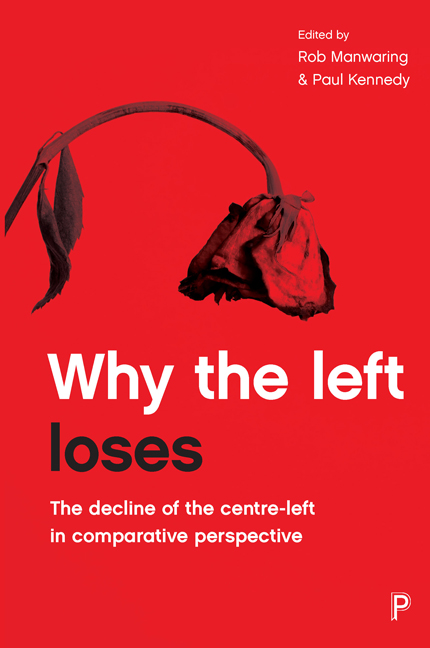Book contents
twelve - Social democracy and the populist challenge
Published online by Cambridge University Press: 08 April 2022
Summary
Introduction
European social democracy is in the danger zone. It threatens to be undermined and overrun by radical left-wing competitors and rightwing populist opponents. Centre-left social democrats have lost their distinct profile and identity within the political arena as they have sought to accommodate themselves to centre-right, neoliberal policy dominance. Regarding issues of cultural identity, such as European integration or migration, social democracy is suffering more than its competitors from the ‘globalisation conflict’. Social democracy appears unable as a political vehicle to bridge the differing concerns between the higher educated and the lower educated, to deal with the issue of open borders and free movement, immigration, European integration and free global trade. European social democracy has not achieved a ‘core constituency’ in its pursuit of ‘the European Union Adventure’, as the dramatic outcome of the Brexit referendum has once again demonstrated.
The task of rebuilding social democracy is significant and formidable. First of all, social democracy has to restore within national democracies the post-war social contract of welfare state fairness, a restoration of trust in socioeconomic security and cultural continuity. This is a necessary precondition for a renewed European Project, in which social democrats, in partnership and coalition with other left-wing and Green parties and social movements, should formulate an alternative political economy for European cooperation. It has to shift away from the technocratic, governmental, neoliberal mainstream of contemporary politics. It must get back to its roots, basic values and lost electorates. Otherwise, ‘Pasokification’ threatens to ruin established social democratic parties, accompanied by the chilling rise of antipluralist right-wing populism and anti-democratic extremism (Muller, 2016, pp 101-3).
‘Pasokification’
A spectre is haunting European social democracy: ‘Pasokification’. This refers to the total disappearance of the formerly dominant powerhouse PASOK in Greece, the social democratic sister-party of the UK and Dutch Labour Parties (‘the nearest thing to a social-democratic party in that unfortunate country’; see Marquand, 2015), self-immolated as a direct result of the Euro crisis. Under the authority of the Troika of the European Commission, European Central Bank (ECB) and International Monetary Fund (IMF), and under strong pressure from Northern European politicians, PASOK capitulated in the face of a very severe reform programme of austerity politics.
- Type
- Chapter
- Information
- Why the Left LosesThe Decline of the Centre-Left in Comparative Perspective, pp. 185 - 202Publisher: Bristol University PressPrint publication year: 2017

